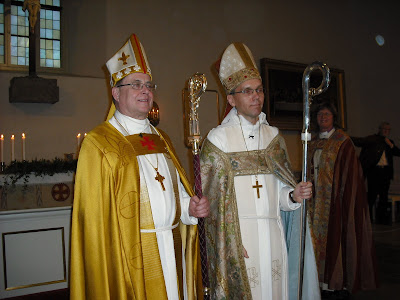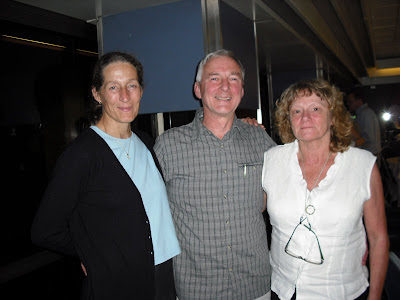New Bishop of Porvoo Consecrated

Björn Vikström was consecrated Bishop of Porvoo in the Evangelical Lutheran Church of Finland on Sunday 29 November. (He is on the right in the picture, with the Archbishop of Turku, Jukka Paarma, on the left). Porvoo is the diocese for Swedish-speaking parishes throughout Finland. The Archbishop of Turku presided in Swedish at the service in Porvoo Cathedral, which included portions of scripture read in Danish, Finnish, Norwegian and English. I was invited to be a co-consecator along with bishops from Finland, Sweden, Denmark and Norway. The chaplain of the Anglican Church in Finland, the Revd Rupert Moreton, was also an invited guest. Bishop Vikström, 46, comes from an academic career, formerly a researcher at Åbo Akademi, the Swedish-language University of Turku. His subjects include sustainable development and environmental ethics, a useful field given the challenges before us. He was ordained priest in 1988. The Vikström family is well known in Porvoo. Bishop B...


















